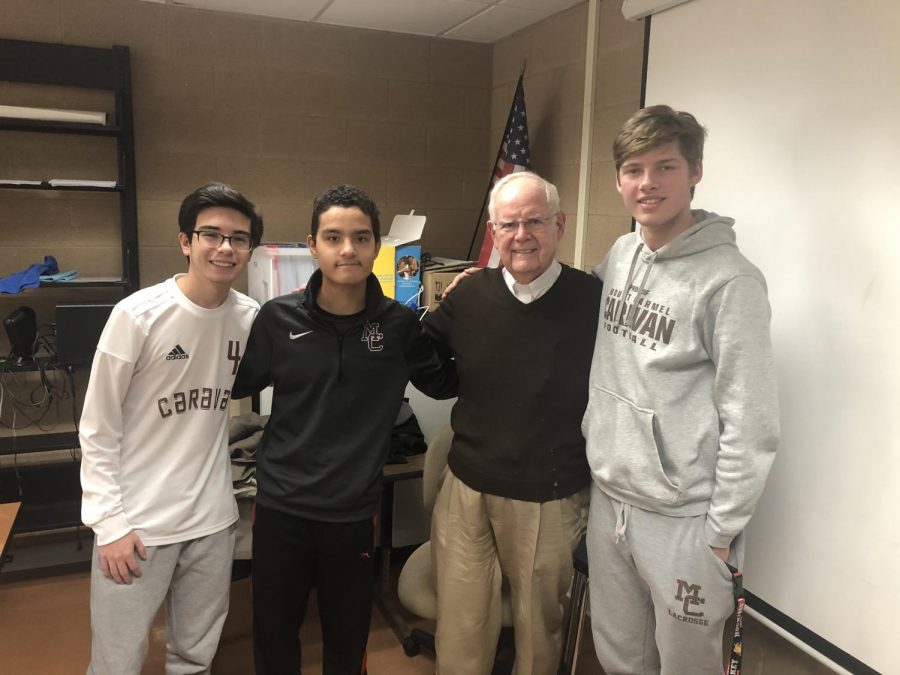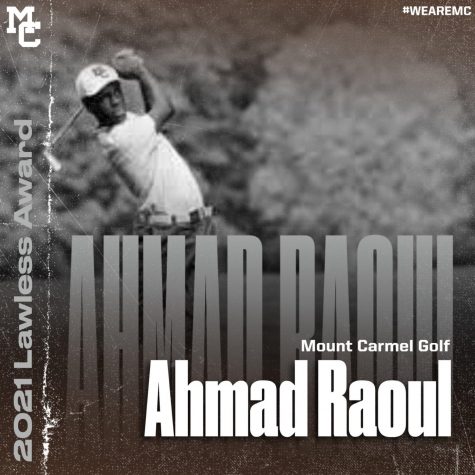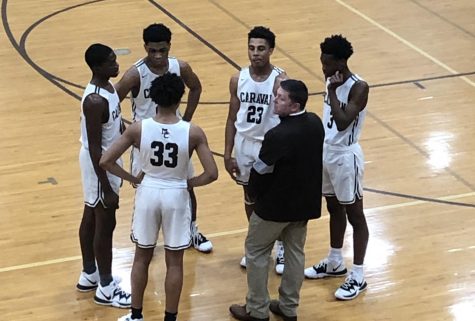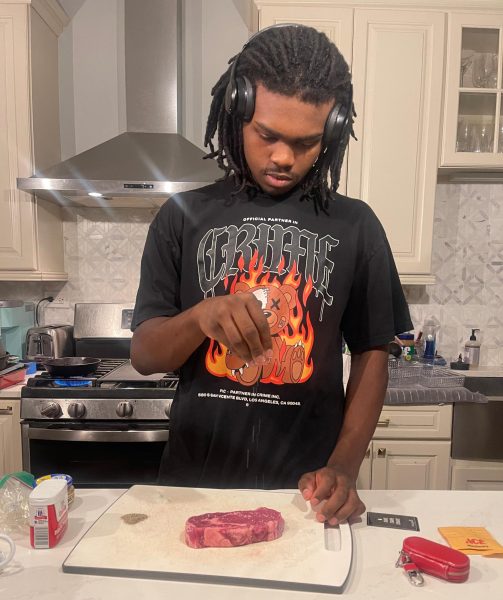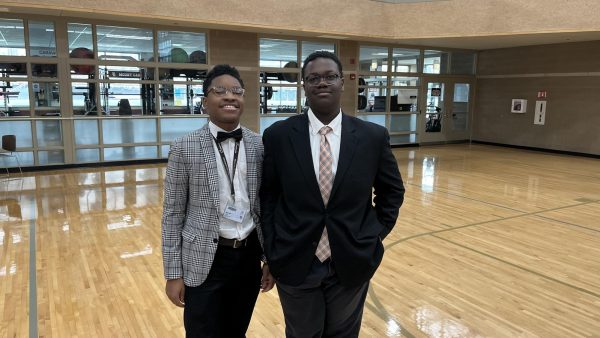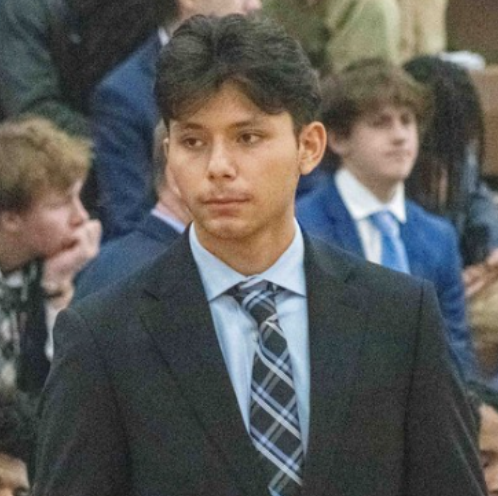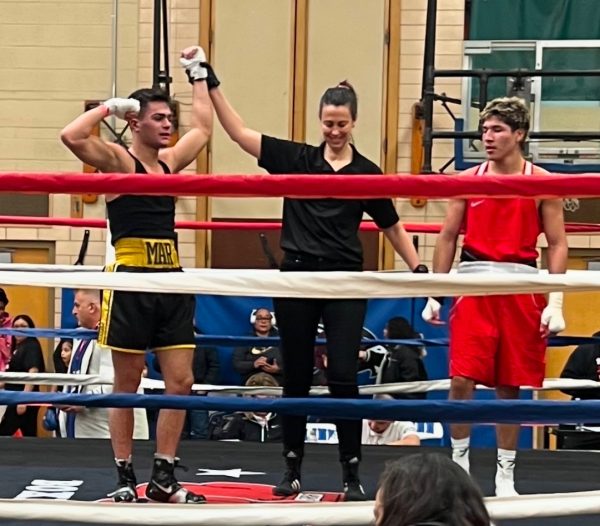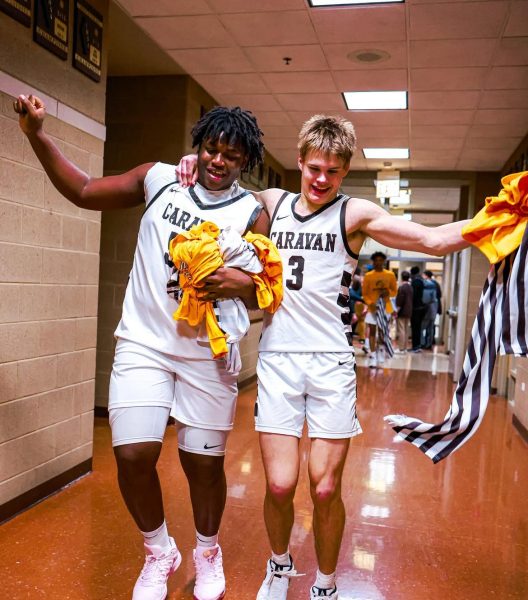Someone you should know: Fr. Tracy O’Sullivan, O. Carm
Part One of a three-part article on Fr. O’Sullivan based on interviews with The Caravan staff
Fr. Tracy O’Sullivan recently was interviewed by mccaravan.com staff. including Charlie Pineda, Francisco Avila, and Daniel “Duke” Allen.
Much has been written in recent weeks about two MC quarterbacks – current Head Coach Jordan Lynch (who quarterbacked the Caravan in the 2009 and 2010 seasons, and went on to become a Heisman finalist while playing at Northern Illinois University), and his brother, current junior quarterback Justin Lynch. Together with the other coaches and members of the 2019 Caravan team, the Lynch brothers helped bring Mount Carmel its 13th state football championship this fall.
But living quietly in retirement just down the street at the Carmelite Priory is another MC quarterback from an earlier era: Father Tracy O’Sullivan, O.Carm. ’54. While his early fame came on the football field, Fr. Tracy has gone on to live a remarkable life. His is a story that should be known to all current members of the MC family.
Fr. Tracy was reintroduced to the MC community on the Feast of Our Lady of Guadalupe, when he celebrated the all-school Mass. The Caravan will look deeper into this legendary Carmelite in a series of articles beginning today.
Fr. Tracy came to MC from a large Irish Catholic family. In fact, he was one of four brothers to attend Mount Carmel; while his four sisters attended Loretta Academy (the all-girls school that once occupied the boarded-up building on 65th Street).
It seemed to Fr. Tracy that in those days you were either Catholic or not Catholic – and the Catholic culture was very “clannish. Practically everyone went to church on Sunday.”
But religion was a mixed bag: it seemed to offer clear teachings, and simple, black and white rules — but it also suffered from a lot of ignorance and prejudice.
It was a “radically different world,” with no television (until 1947), and very little violence. While “you could go to almost any neighborhood” without fear, the racial segregation of those days pretty much kept blacks and whites from interacting.
Thinking back, he recalls that he attended MC “mostly to play football,” although he also was a good student, and was placed in the top academic section of his class.
During Fr. Tracy’s time in grammar school, he had given some thought to becoming a priest, but had set that thought aside once he got to high school. Instead, his focus was on football “and the young ladies.”
As a junior, he was the starting quarterback for MC’s third consecutive Prep Bowl championship, which was the equivalent in the 50s and 60s to today’s state championship. As a result, he had a reputation as a “big man on campus.” That team was coached by Terry Brennan, who after Fr. Tracy’s junior year, was hired to coach at the University of Notre Dame.
The change in coaches apparently had an impact on the team’s fortunes, for during Fr. Tracy’s senior year (1953-54), the Caravan lost to De La Salle in a regular season game for the first time in many years. That loss foreshadowed a more disappointing defeat, as the Caravan fell to Leo High School in the Catholic League playoffs, derailing the team’s hopes for a fourth straight Prep Bowl title.
Fr. Tracy points to that loss as one of the defining experiences in his early life.
As the starting quarterback and a team captain, he had “felt responsible” for the loss. However, as he recalled in his homily for Mount Carmel’s liturgy on the Feast of Our Lady of Guadalupe this year, he came to understand that it was a gift to be the first MC quarterback in his four years at the school to lose the City Championship. It was that loss that helped him find a more meaningful focus for his life – the “Jesus game.” His new perspective – “winning by losing” – motivated him to join the Carmelites and dedicate his life to Jesus.
While his early fame came on the football field, Fr. Tracy has gone on to live a remarkable life which included parish ministry in Woodlawn, personal activism in Chicago and Los Angeles during periods of significant racial tension, and writing four books on his experiences. We will pick up that chapter of Fr. Tracy’s story in Part Two.

